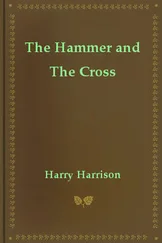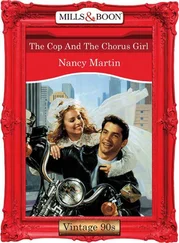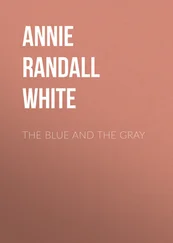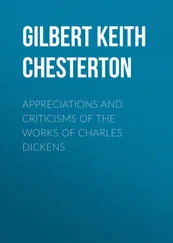Gilbert Chesterton - The Ball and the Cross
Здесь есть возможность читать онлайн «Gilbert Chesterton - The Ball and the Cross» весь текст электронной книги совершенно бесплатно (целиком полную версию без сокращений). В некоторых случаях можно слушать аудио, скачать через торрент в формате fb2 и присутствует краткое содержание. Жанр: Классическая проза, на английском языке. Описание произведения, (предисловие) а так же отзывы посетителей доступны на портале библиотеки ЛибКат.
- Название:The Ball and the Cross
- Автор:
- Жанр:
- Год:неизвестен
- ISBN:нет данных
- Рейтинг книги:5 / 5. Голосов: 1
-
Избранное:Добавить в избранное
- Отзывы:
-
Ваша оценка:
- 100
- 1
- 2
- 3
- 4
- 5
The Ball and the Cross: краткое содержание, описание и аннотация
Предлагаем к чтению аннотацию, описание, краткое содержание или предисловие (зависит от того, что написал сам автор книги «The Ball and the Cross»). Если вы не нашли необходимую информацию о книге — напишите в комментариях, мы постараемся отыскать её.
The Ball and the Cross — читать онлайн бесплатно полную книгу (весь текст) целиком
Ниже представлен текст книги, разбитый по страницам. Система сохранения места последней прочитанной страницы, позволяет с удобством читать онлайн бесплатно книгу «The Ball and the Cross», без необходимости каждый раз заново искать на чём Вы остановились. Поставьте закладку, и сможете в любой момент перейти на страницу, на которой закончили чтение.
Интервал:
Закладка:
“Ah, you’re a casuist!” said the large man, wagging his head. “Now, do you know what I always say to casuists...?”
MacIan made a violent gesture; and Turnbull broke into open laughter. The peacemaker did not seem to be in the least annoyed, but continued in unabated enjoyment.
“Well, well,” he said, “let us get back to the point. Now Tolstoy has shown that force is no remedy; so you see the position in which I am placed. I am doing my best to stop what I’m sure you won’t mind my calling this really useless violence, this really quite wrong violence of yours. But it’s against my principles to call in the police against you, because the police are still on a lower moral plane, so to speak, because, in short, the police undoubtedly sometimes employ force. Tolstoy has shown that violence merely breeds violence in the person towards whom it is used, whereas Love, on the other hand, breeds Love. So you see how I am placed. I am reduced to use Love in order to stop you. I am obliged to use Love.”
He gave to the word an indescribable sound of something hard and heavy, as if he were saying “boots”. Turnbull suddenly gripped his sword and said, shortly, “I see how you are placed quite well, sir. You will not call the police. Mr. MacIan, shall we engage?” MacIan plucked his sword out of the grass.
“I must and will stop this shocking crime,” cried the Tolstoian, crimson in the face. “It is against all modern ideas. It is against the principle of love. How you, sir, who pretend to be a Christian...”
MacIan turned upon him with a white face and bitter lip. “Sir,” he said, “talk about the principle of love as much as you like. You seem to me colder than a lump of stone; but I am willing to believe that you may at some time have loved a cat, or a dog, or a child. When you were a baby, I suppose you loved your mother. Talk about love, then, till the world is sick of the word. But don’t you talk about Christianity. Don’t you dare to say one word, white or black, about it. Christianity is, as far as you are concerned, a horrible mystery. Keep clear of it, keep silent upon it, as you would upon an abomination. It is a thing that has made men slay and torture each other; and you will never know why. It is a thing that has made men do evil that good might come; and you will never understand the evil, let alone the good. Christianity is a thing that could only make you vomit, till you are other than you are. I would not justify it to you even if I could. Hate it, in God’s name, as Turnbull does, who is a man. It is a monstrous thing, for which men die. And if you will stand here and talk about love for another ten minutes it is very probable that you will see a man die for it.”
And he fell on guard. Turnbull was busy settling something loose in his elaborate hilt, and the pause was broken by the stranger.
“Suppose I call the police?” he said, with a heated face.
“And deny your most sacred dogma,” said MacIan.
“Dogma!” cried the man, in a sort of dismay. “Oh, we have no dogmas , you know!”
There was another silence, and he said again, airily:
“You know, I think, there’s something in what Shaw teaches about no moral principles being quite fixed. Have you ever read The Quintessence of Ibsenism ? Of course he went very wrong over the war.”
Turnbull, with a bent, flushed face, was tying up the loose piece of the pommel with string. With the string in his teeth, he said, “Oh, make up your damned mind and clear out!”
“It’s a serious thing,” said the philosopher, shaking his head. “I must be alone and consider which is the higher point of view. I rather feel that in a case so extreme as this...” and he went slowly away. As he disappeared among the trees, they heard him murmuring in a sing-song voice, “New occasions teach new duties,” out of a poem by James Russell Lowell.
“Ah,” said MacIan, drawing a deep breath. “Don’t you believe in prayer now? I prayed for an angel.”
“An hour ago,” said the Highlander, in his heavy meditative voice, “I felt the devil weakening my heart and my oath against you, and I prayed that God would send an angel to my aid.”
“Well?” inquired the other, finishing his mending and wrapping the rest of the string round his hand to get a firmer grip.
“Well?”
“Well, that man was an angel,” said MacIan.
“I didn’t know they were as bad as that,” answered Turnbull.
“We know that devils sometimes quote Scripture and counterfeit good,” replied the mystic. “Why should not angels sometimes come to show us the black abyss of evil on whose brink we stand. If that man had not tried to stop us...I might...I might have stopped.”
“I know what you mean,” said Turnbull, grimly.
“But then he came,” broke out MacIan, “and my soul said to me: ‘Give up fighting, and you will become like That. Give up vows and dogmas, and fixed things, and you may grow like That. You may learn, also, that fog of false philosophy. You may grow fond of that mire of crawling, cowardly morals, and you may come to think a blow bad, because it hurts, and not because it humiliates. You may come to think murder wrong, because it is violent, and not because it is unjust. Oh, you blasphemer of the good, an hour ago I almost loved you! But do not fear for me now. I have heard the word Love pronounced in his intonation; and I know exactly what it means. On guard!’”
The swords caught on each other with a dreadful clang and jar, full of the old energy and hate; and at once plunged and replunged. Once more each man’s heart had become the magnet of a mad sword. Suddenly, furious as they were, they were frozen for a moment motionless.
“What noise is that?” asked the Highlander, hoarsely.
“I think I know,” replied Turnbull.
“What?... What?” cried the other.
“The student of Shaw and Tolstoy has made up his remarkable mind,” said Turnbull, quietly. “The police are coming up the hill.”
VI. THE OTHER PHILOSOPHER
Between high hedges in Hertfordshire, hedges so high as to create a kind of grove, two men were running. They did not run in a scampering or feverish manner, but in the steady swing of the pendulum. Across the great plains and uplands to the right and left of the lane, a long tide of sunset light rolled like a sea of ruby, lighting up the long terraces of the hills and picking out the few windows of the scattered hamlets in startling blood-red sparks. But the lane was cut deep in the hill and remained in an abrupt shadow. The two men running in it had an impression not uncommonly experienced between those wild green English walls; a sense of being led between the walls of a maze.
Though their pace was steady it was vigorous; their faces were heated and their eyes fixed and bright. There was, indeed, something a little mad in the contrast between the evening’s stillness over the empty country-side, and these two figures fleeing wildly from nothing. They had the look of two lunatics, possibly they were.
“Are you all right?” said Turnbull, with civility. “Can you keep this up?”
“Quite easily, thank you,” replied MacIan. “I run very well.”
“Is that a qualification in a family of warriors?” asked Turnbull.
“Undoubtedly. Rapid movement is essential,” answered MacIan, who never saw a joke in his life.
Turnbull broke out into a short laugh, and silence fell between them, the panting silence of runners.
Then MacIan said: “We run better than any of those policemen. They are too fat. Why do you make your policemen so fat?”
“I didn’t do much towards making them fat myself,” replied Turnbull, genially, “but I flatter myself that I am now doing something towards making them thin. You’ll see they will be as lean as rakes by the time they catch us. They will look like your friend, Cardinal Manning.”
Читать дальшеИнтервал:
Закладка:
Похожие книги на «The Ball and the Cross»
Представляем Вашему вниманию похожие книги на «The Ball and the Cross» списком для выбора. Мы отобрали схожую по названию и смыслу литературу в надежде предоставить читателям больше вариантов отыскать новые, интересные, ещё непрочитанные произведения.
Обсуждение, отзывы о книге «The Ball and the Cross» и просто собственные мнения читателей. Оставьте ваши комментарии, напишите, что Вы думаете о произведении, его смысле или главных героях. Укажите что конкретно понравилось, а что нет, и почему Вы так считаете.









